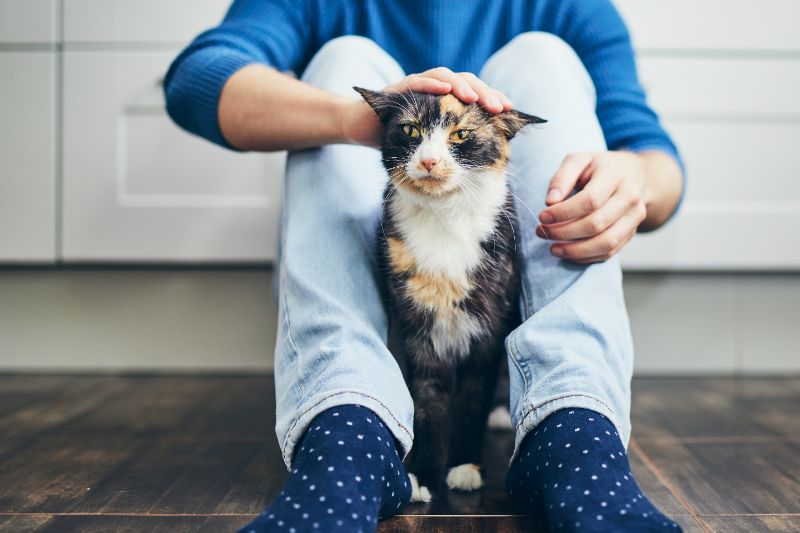Blog
This Summer, Don’t Let Pet Noise Anxiety Get You Down

Most animals dislike loud, sudden, or prolonged noise. Whether it’s the vacuum cleaner, the trash truck, or power tools, they may bolt, hide or try to escape.
Pet noise anxiety can occur throughout the year, but summer presents specific challenges to animals with aversions to seasonal hullabaloo. With tips from Ten West Bird & Animal Hospital, the next few months don’t have to be stressful for struggling animals.
Summer’s Clamor
Thunderstorms, firework displays, parades and parties galore are the sounds of summer – all of which can contribute to pet noise anxiety.
Many pets, including cats, dogs, and birds, have had previously negative experiences with loud noises that inform any future encounters. In other words, they were intensely frightened before and will react in kind should they ever face the same stimuli again.
Left alone, established, repeated pet noise anxiety will likely intensify with time.
Absolute Mayhem
Even in the absence of a traumatic memory, pet noise anxiety can affect any animal at any time. Fear of the noise can drive a perfectly well-adjusted pet toward seemingly irrational hiding, pacing, crying, destructiveness, self-harm, and attempts to escape.
Powerful Associations
Perhaps even more significant is that animals will not just associate their fear and stress with the specific sound, but various other details as well. For instance, thunderstorms will have accompanying wind, drops in pressure, and lightning. Fireworks may also be connected to the people seen lighting them off, the telltale smell, or the location that the animal experienced the loud sound.
The Physical and Mental Effects
Fear, stress and anxiety trigger physical responses that cause harm to mental health. This is especially true if a pet is repeatedly exposed to the triggers.
If you know that your pet has a history of noise anxiety you can help prevent the overwhelming side effects by following these guidelines:
- To reduce exposure to known triggers, do not bring your pet to an event with loud noises or large crowds.
- When you know a thunderstorm is approaching or fireworks are scheduled, bring them inside the home, set up a safe space, offer lots of comfort and reassurance, and help them make positive associations. Stay close.
- Be sure they cannot escape.
- Muffle sounds with soft music, television, or white noise.
Because of the risk of fleeing the scene, be sure that your pet is microchipped, wearing identifiable tags, and up to date on vaccination and parasite prevention.
Acupressure garments, like the Thundershirt Calming Wrap can keep your pet soothed, pheromone sprays, and prescription medication can help pet anxiety from taking over.
Birds and Stress
Pet noise anxiety can affect birds in different ways and should be taken seriously. Please let us know if your bird is picking at their feathers, self-mutilating, behaving in odd or repetitive ways, vocalizing differently, acting aggressively, or is disinterested food or water.
Once you know what stressors affect your bird you can work toward eliminating or reducing those triggers. Moving slowly around them can calm nerves, and releasing them from their cage to safely roam inside the house may relieve their pet noise anxiety.
No More Pet Noise Anxiety
It can be very difficult to watch your furry friend suffer pet noise anxiety. If you have further questions, or need additional behavioral support, please let us know. We’re always here to help.
